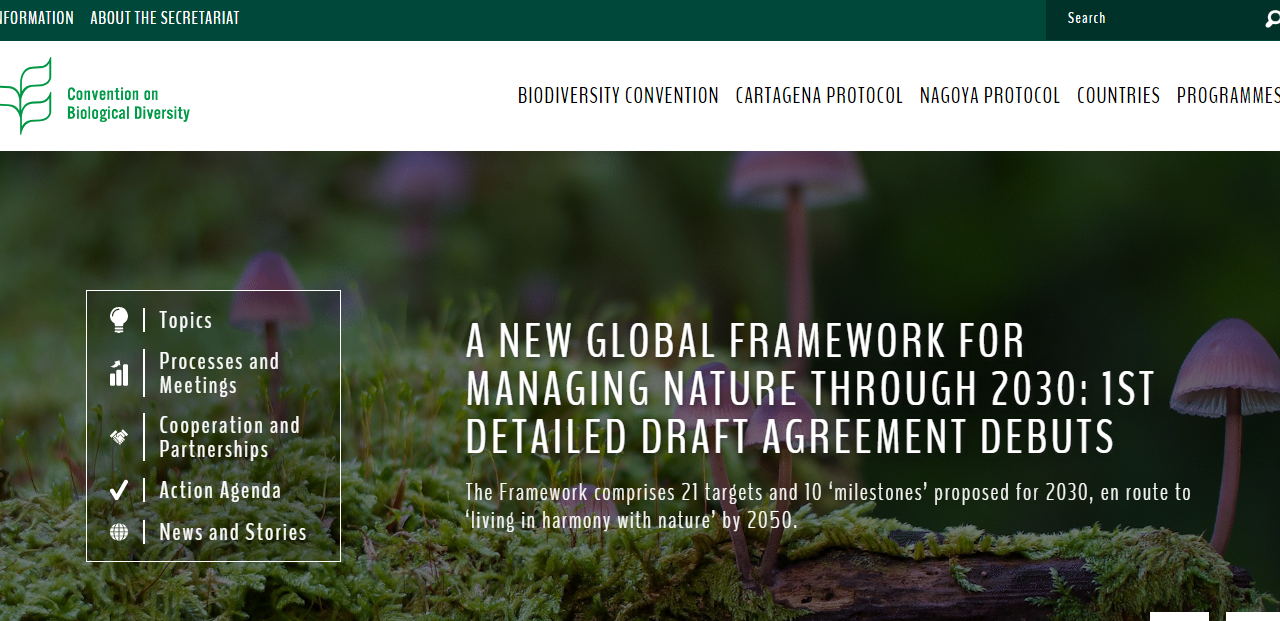Eliminating plastic pollution, reducing pesticide use by two-thirds, halving the rate of invasive species introduction and eliminating $500bn of harmful environmental government subsidies a year are among the targets in a new draft of a Paris-style UN agreement on biodiversity loss.
The goals set out by the UN Convention on Biological Diversity (CBD) to help halt and reverse the ecological destruction of Earth by the end of the decade also include protecting at least 30% of the world’s oceans and land and providing a third of climate crisis mitigation through nature by 2030.
The latest draft of the agreement will be scrutinised by governments before a key summit in the Chinese city of Kunming (most probably postponed for 2022 due to the pandemic) where the final text will be negotiated.
Basile van Havre, co-chair of the CBD Working Group said the goals were based on the latest science. He added that, if adopted, it could represent a significant shift in global agriculture.
“Change is coming in food production. There will be a lot more of us in 10 years and they will need to be fed so it’s not about decreasing the level of activity. It’s about increasing the output and doing better for nature….Cutting nutrient runoff in half, reducing pesticide use by two-thirds and eliminating plastic discharge: those are big. I’m sure they’re going to raise some eyebrows as they present significant change, particularly in the agriculture.”
Credits: The Guardian, 12 July 2021
